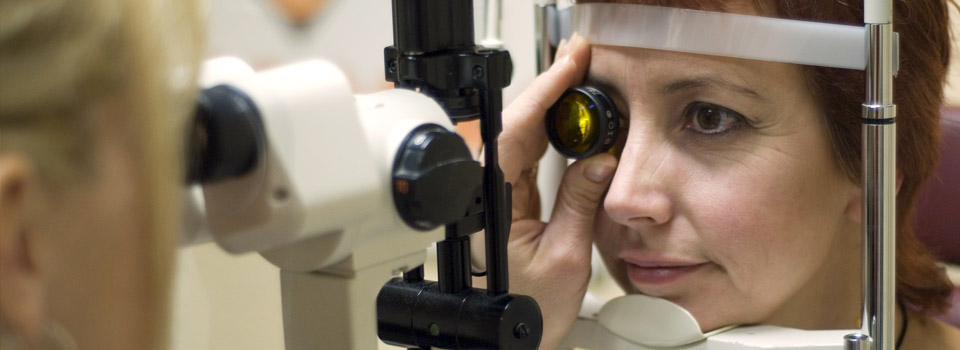This month has been announced age-related macular degeneration (AMD) and low vision awareness month. Age-related macular degeneration (AMD) is the number one source of blindness for senior citizens. AMD often results in low vision, a term eye doctors use to describe major visual impairment that cannot be corrected by usual treatments such as normal glasses, contacts, medicine or even eye surgery. For those with AMD, a degenerative eye disease, damage occurs to the macula, the part of the retina which enables sharp central vision. The disease causes a blurring of the central vision zone, but usually doesn’t affect the peripheral visual field.
Low vision from AMD is usually gradual but occasionally vision loss can drastically appear seemingly overnight. Early signs of vision loss from AMD include blurred areas in your central visual field or unusually distorted vision. Although there is currently no cure for AMD, early diagnosis and attention can stop advancement of the disease and therefore prevent vision impairment. For individuals who have already experienced vision loss, a normal life can be maintained with low-vision rehabilitation.
Those with greater risk factors of AMD include individuals over 65, women, Caucasians and people with blue eyes, severe hyperopia (farsightedness) or a genetic disposition. Risk factors that can be minimized include smoking, high blood pressure, exposure to ultraviolet light and being overweight. Maintaining overall physical health and a proper diet has been shown to be preventative.
Those who are living with low vision should consult with an optometrist about low vision rehabilitation and special devices that can support independence. After a thorough examination, a low vision professional can help you obtain helpful low vision aids such as reading telescopes and non-optical adaptive aids such as special light fixtures and signatureguides.
Because AMD and other eye diseases can be prevented by early diagnosis, optometrists suggest a routine annual eye exam for all ages. Your awareness can lead to prevention of vision loss.



